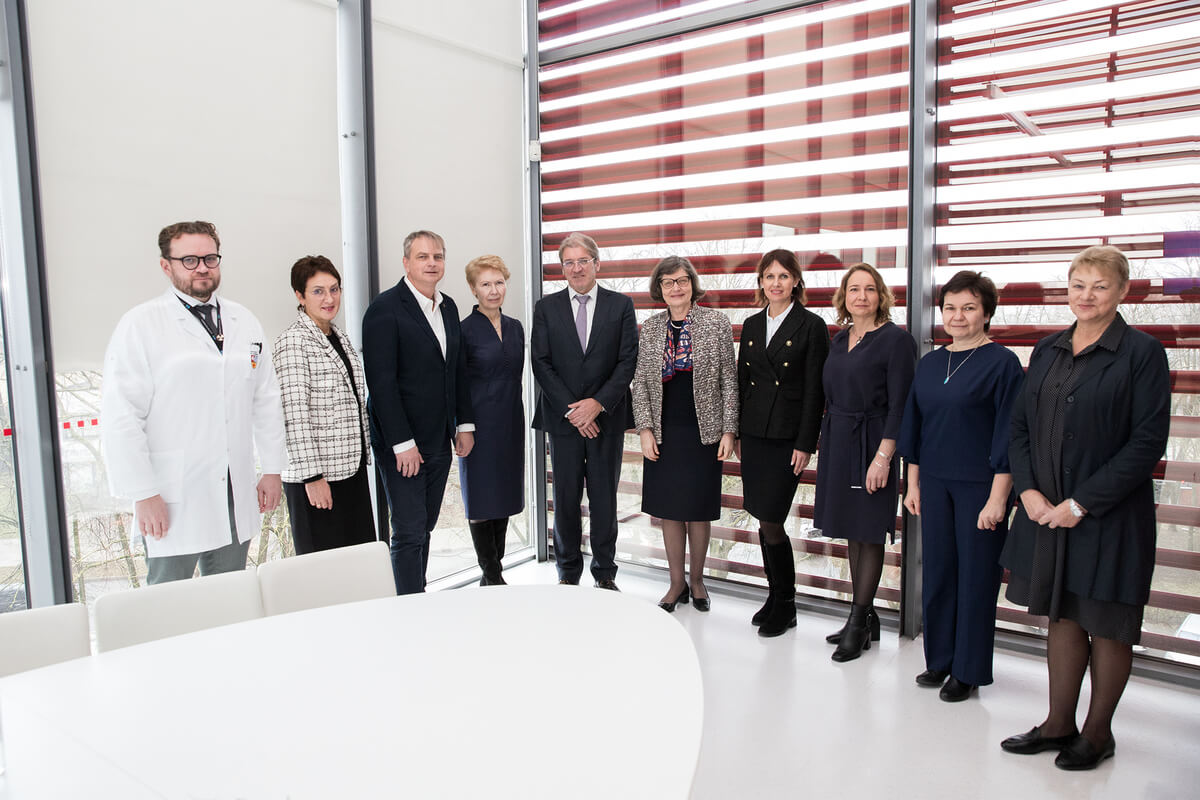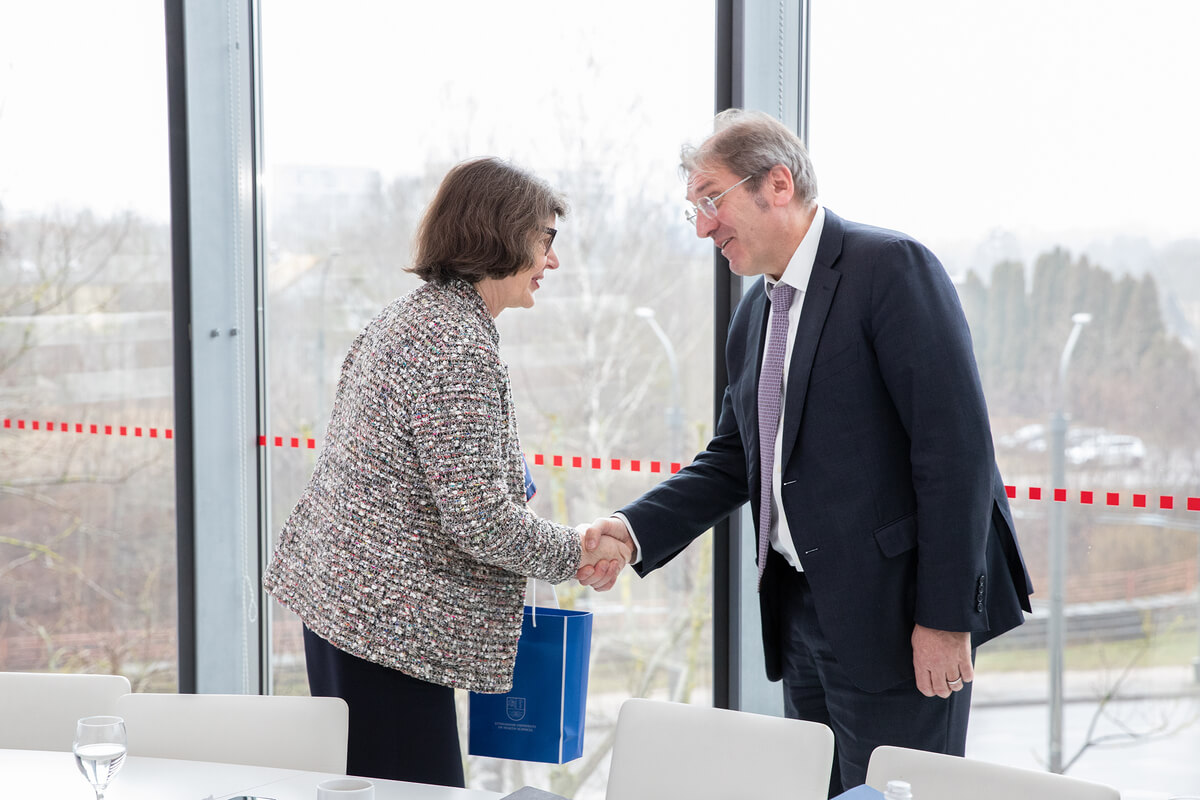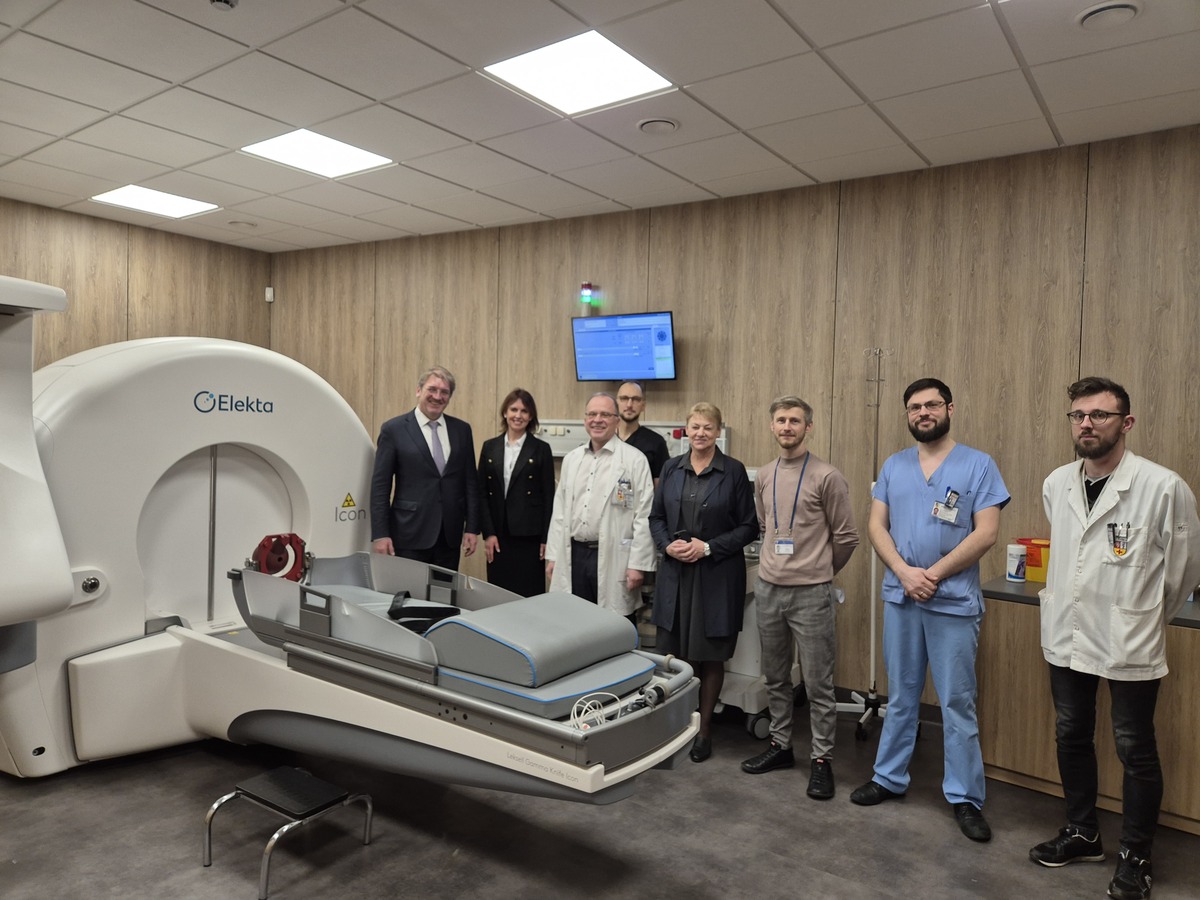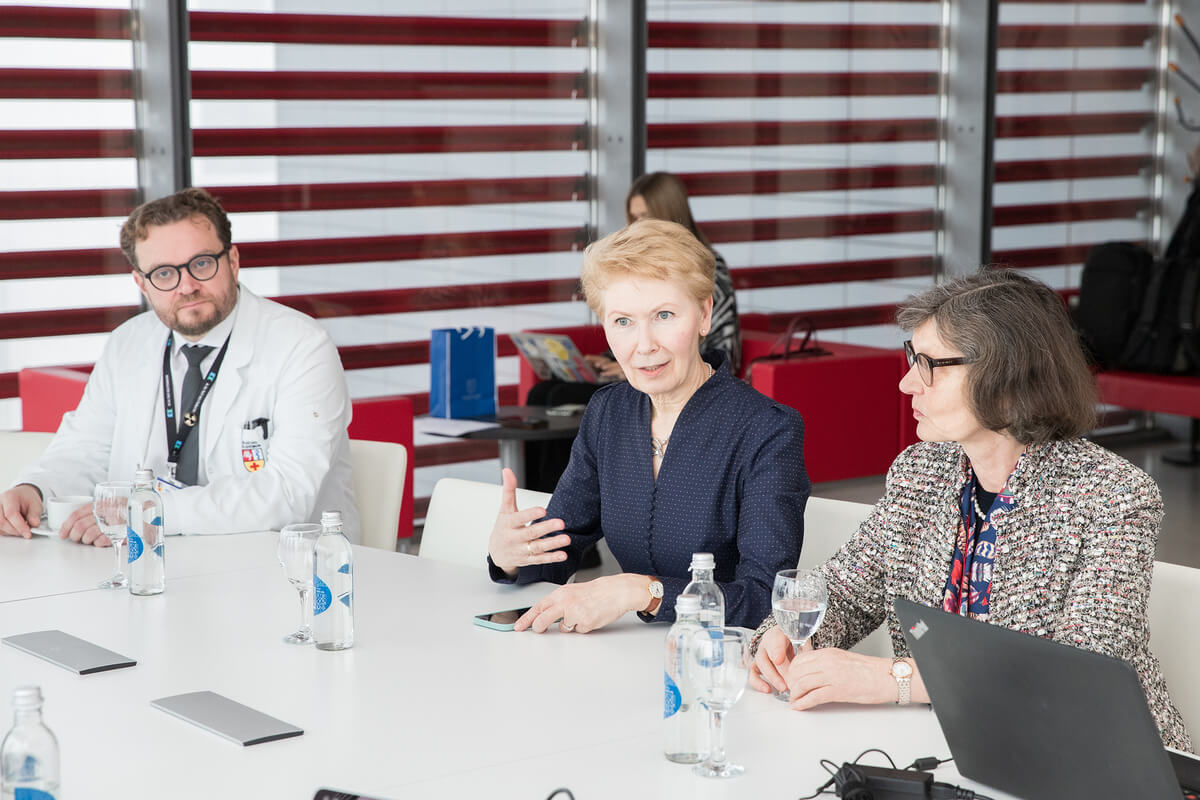Professor Viktor Jirsa, EBRAINS Chief Science Officer, visited LMSU: Strengthening Cooperation between LSMU and EBRAINS in Neuroscience

Lithuanian University of Health Sciences (LSMU) welcomed Prof. Viktor Jirsa, Chief Science Officer of the European Neuroscience Research Infrastructures (EBRAINS), the Leader of the Neuroinformatics project “The Virtual Brain”, Director of the Institute of Systems Neuroscience, Aix-Marseille University, France.
Prof. Viktor Jirsa explored research activities in fundamental and clinical neuroscience, along with the strategy for expanding EBRAINS initiatives at LSMU during his visit on the 6th of February 2025.
EBRAINS is a leading digital research infrastructure that accelerates brain research in neuroscience, brain health, and neurotechnology. EBRAINS enables researchers to explore complex brain functions, model neurological processes, and develop innovative treatments for brain disorders. It unites a global community of organizations, researchers, clinicians, and experts, integrating advanced neuroscience, brain simulation, big data analysis, high-performance computing, neurorobotics, and neurotechnologies to translate scientific breakthroughs into medical and industrial applications
LSMU neuroscientists have developed a strong and enduring collaboration with EBRAINS since 2021. Prof. Aušra Saudargienė (Neuroscience Institute; Department of Health Psychology) and her group conduct intensive research activities with Prof. V. Jirsa on developing personalized digital brain twin models using EBRAINS The Virtual Brain methodology. In addition, international joint scientific and educational events have been organized with the support by prof V. Jirsa and EBRAINS such as Human Brain Project/EBRAINS Symposium “From Cortical Microcircuits to Consciousness”, Paris, France, 2020; 10th Baltic-Nordic Summer School on Neuroscience “From Neurons to Whole Brain Models, Consciousness and Artificial Intelligence”, Finland-Sweden 2024; and the upcoming 34th International Conference on Artificial Neural Networks ICANN 2025, Kaunas, 9-12 September 2025: https://e-nns.org/icann2025/.
Bridges for interdisciplinary collaboration in neuroscience
EBRAINS aims to facilitate collaboration among European neuroscience researchers by providing a shared digital infrastructure. According to Prof. V. Jirsa, digital collaboration unites experts from diverse fields, including artificial intelligence, neuroscience, neurosurgery, neurology, engineering, mathematics, and physics. The professor visited LSMU to share his expertise and explore how the university could both contribute to and benefit from EBRAINS.
“You have excellent neuroscience research in Lithuania, excellent neurosurgery and neurology, and very good artificial intelligence specialists. I want to show how you could contribute to the EBRAINS international collaboration and what it would bring to your country,” said the professor.
Prof. Viktor Jirsa met with Prof. Dr. Rimantas Benetis, LSMU Rector, and the University’s leaders and researchers Prof. Habil. Dr. Daiva Rastenytė, Chancellor of the Medical Academy; Prof. Habil. Dr. Vaiva Lesauskaitė, Vice Rector for Research; Prof. Dr. Kęstutis Petrikonis, Vice Rector for Studies; Prof. Dr. Ingrida Janulevičienė, Dean of the International Relations and Study Centre; Dr. Rima Naginienė, Deputy Director for Science of the Neuroscience Institute; Prof. Donatas Vajauskas at the Department of Radiology, Assoc. Prof. Dr. Giedrė Širvinskienė, Prof. Dr. Renata Paukštaitienė, Head of tha Data Analytics Center; Prof. Dr. Aušra Saudargienė, Neuroscience Institute and the Department of Health Psychology. Prof. Viktor Jirsa visited the Nuclear Medicine Research Centre, Neuroscience Institute at the Medical Academy, the Departments of Neurology, Neurosurgery and Psychiatry, and discussed opportunities for collaboration and the advancement of neuroscience research at LSMU.
Artificial intelligence in neuroscience: new opportunities and breakthrough
During his visit to LSMU, the EBRAINS Chief Science Officer mentioned the bright and exciting future of artificial intelligence in neuroscience.
“What we have in AI today, we have a breakthrough in terms of data-driven AI. Deep learning allows neural network-like models to analyse the data fed into them, learn the data structure, and produce exciting results. These models can extract what is in the data, but cannot process what is not in the data. We cannot measure everything in the biological brain, only certain neural processes. We are measuring derivatives of those processes, so we need to combine them with other knowledge for more accurate results.”
According to professor, mathematical models and artificial intelligence technologies are opening new possibilities in medicine.
“Combining data with knowledge leads to mechanistic and data-driven models that make predictions in the areas that cannot be measured directly.”
He stressed that these techniques could be particularly important in the treatment of neurological and psychiatric diseases such as epilepsy and schizophrenia.
“We have not made significant progress in treating some diseases for the past 50 years. Artificial intelligence offers new hope for better diagnosis, autonomous analysis, and better therapies. This is already happening, and now we can really start thinking about what we’ve only been dreaming,” said the EBRAINS Chief Science Officer.
Prof. Viktor Jirsa’s visit further strengthened the collaboration between LSMU and EBRAINS, creating new opportunities for advancing neuroscience and neurotechnology research in Lithuania, fostering deeper scientific exchange and interdisciplinary cooperation.




